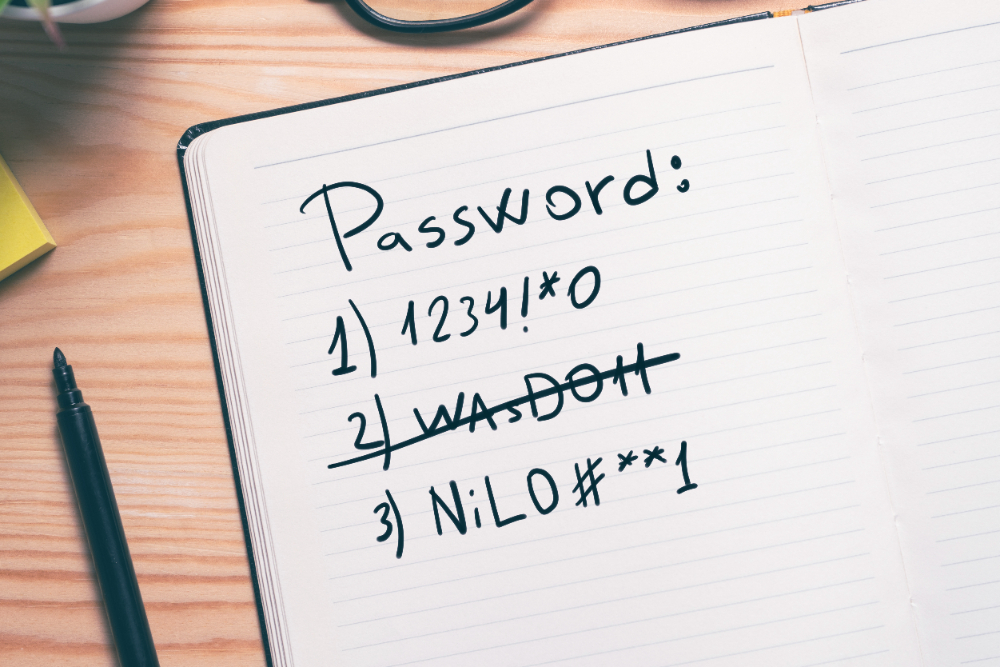Often referred to as the ”ghost in the machine”, the dictionary attack method exploits easily guessed passwords and weak security practices and leaves systems vulnerable to compromise.
This article will explore dictionary attacks, how they work, and, most importantly, how to protect yourself and your organization from becoming victims.
Dictionary attacks: A definition

A dictionary attack is a hacking technique where cybercriminals try to guess passwords by testing common words, phrases, or combinations. For example, such as ”password” or ”123456” in the hope of finding a matching password. These attacks rely on the fact that many people use simple and easy-to-guess passwords.
How does a dictionary attack work?
Hacker Toolkit
Hackers use specialized software that contains lists of common words, names, and even number combinations that people often use in their passwords. This list is like their ”dictionary”.
Trying Words
The software automatically tries each word from the list as a password to try to gain access to your account.
Why It Works
Many people use simple, easy-to-remember passwords like ”password”, ”123456”, or their pet’s name. These types of passwords can be cracked easily by a dictionary attack.
Common Targets of Dictionary Attacks

Password Systems
Password systems are one of the most common targets for dictionary attacks. Hackers use these attacks to guess users ‘ passwords and gain access to personal accounts, such as email, social media, or banking applications. Since many people use simple or popular passwords, these systems are especially vulnerable without strong security measures.
Encryption Keys
Encryption keys can also be the target of dictionary attacks. Cybercriminals try to guess keys by attempting easy-to-guess combinations or commonly used phrases. If successful, they can unlock confidential information, thus jeopardizing data security.
Web Applications
Web applications, such as online stores or services, are often the target of dictionary attacks. Hackers usually target login pages, looking for weak passwords or security holes. Without proper protection, such as CAPTCHA systems or account lockouts, web applications can be an easy entry point for attackers.
The Impact of Dictionary Attacks on Data Security
Compromised Accounts and Data Breaches
Dictionary attacks can lead to compromised accounts, giving hackers unauthorized access to personal or organizational data. Once inside, they can steal sensitive information, such as financial details, personal communications, or business documents. This often results in data breaches of individuals, companies, and their customers.
Reputational and Financial Consequences
The impact of a dictionary attack is not just about stolen data; it can also damage a company’s reputation. Customers could lose trust in a business that cannot protect their information, leading to lost sales and long-term damage to the brand. Additionally, organizations may face significant financial losses due to legal fines, regulatory penalties, and the cost of repairing their systems after an attack.
Best practices against dictionary attacks

Creating a strong password
Strong passwords are your first line of defense against dictionary attacks. Use a mix of uppercase and lowercase letters, numbers, and special characters, and avoid common words or easily guessed patterns. Also, consider using longer passwords, at least 12 characters, as they are more challenging for hackers to crack.
2FA or MFA
Two-factor authentication (2FA) or multi-factor authentication (MFA) adds an extra layer of security by requiring more than just a password to log in. While hackers can guess your password, they won’t be able to log in without a second verification step, such as a code sent to your mobile phone or an app-based confirmation.
Regular password update
Changing your password regularly reduces the risk of a dictionary attack. If a hacker tries to crack your password, updating it frequently can stop them. Changing your password as soon as a breach is suspected is also a good idea.
Using a password manager
Password managers help you create and store unique and complex passwords for each account. This tool makes it easy to avoid password reuse and ensure each password is secure without memorizing it.
Security awareness training
Educating yourself and your team about the dangers of weak passwords and dictionary attacks is essential. Security awareness training helps everyone understand the importance of strong passwords, how to recognize phishing attempts, and what to do if a breach is suspected.
Network security measures
Implementing network security measures, such as firewalls, intrusion detection systems, and account lockout policies after multiple failed logins, can help stop dictionary attacks. These tools make it harder for hackers to carry out their attacks undetected.
Frequently Asked Questions
What is the difference between dictionary attack and brute force?
What is the difference between password spraying and dictionary attack?
How successful are dictionary attacks?
Conclusion
Dictionary attacks remain an ongoing threat in today’s digital world, but understanding how they work and taking proactive steps can greatly reduce your risk. By creating strong passwords, enabling multi-factor authentication, and keeping up to date with cybersecurity best practices, you can protect your accounts and sensitive data from falling into the wrong hands.
Remember, security is an ongoing process- regularly updating your defenses ensures you stay one step ahead of potential attackers. Stay vigilant, and keep your digital life safe.
